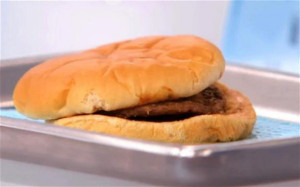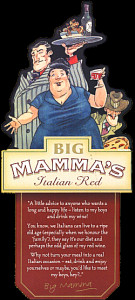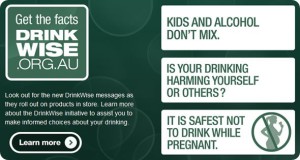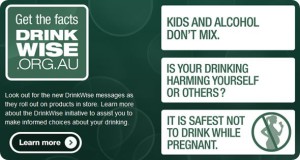Do you want fries with that?
April 26th, 2013 | Food & Wine
 Have you ever thought that there are just too many experts? Too many studies advising that we should do this or eat that? This is good for you and this is bad for you etc., etc….. Sometimes I feel like shouting “Stop”, and then just carry on by using my own judgement and common sense. A bit of everything but ‘in moderation’ would seem like the best idea to me.
Have you ever thought that there are just too many experts? Too many studies advising that we should do this or eat that? This is good for you and this is bad for you etc., etc….. Sometimes I feel like shouting “Stop”, and then just carry on by using my own judgement and common sense. A bit of everything but ‘in moderation’ would seem like the best idea to me.
I have to confess that one of the latest studies made me smile, and I had absolutely no idea when I saw it that it had been commissioned here in Spain. Apparently, according to Spanish ‘experts’, eating to much fast food will make you depressed. Burgers, hot dogs, pizza, doughnuts and croissants can all help to make you feel ‘down’. Forgive me for saying but this seems hardly surprising, and do you really have to be an expert to come up with that conclusion? They continue by adding that people who eat too much fast food are likely to have other bad habits as well. Of course it could simply be that by eating unhealthy food and putting on a bit of excess weight then this could also be a contributory factor.
Anyway, in order to make this post a little more relevant to our line of work, there is the tale of another group of scientists in Chicago who have discovered that drinking to excess can either make you happy, or perhaps even make you sad. Believe me, this isn’t a joke. Although sometimes described as a depressant, alcohol can actually produce a mixture of either stimulant or sedative effects, with some people treating it as a social lubricant whilst others see it as a potential ‘downer’. Again, I don’t claim to be an expert, but I think I could have quite easily worked that out for myself. They go on to say that the way it affects you is all down to your individual genetic make-up, and their ‘discovery’ could explain why some drinkers become angry and upset if they get intoxicated while others become merry and silly.
I guess that the conclusion we should draw from these two most ‘enlightening’ studies is – don’t use a bottle and a half of cab-merlot to wash down your triple cheese burger and double fries – it might be bad for your health (mental or otherwise).
 Have you ever thought that there are just too many experts? Too many studies advising that we should do this or eat that? This is good for you and this is bad for you etc., etc….. Sometimes I feel like shouting “Stop”, and then just carry on by using my own judgement and common sense. A bit of everything but ‘in moderation’ would seem like the best idea to me.
Have you ever thought that there are just too many experts? Too many studies advising that we should do this or eat that? This is good for you and this is bad for you etc., etc….. Sometimes I feel like shouting “Stop”, and then just carry on by using my own judgement and common sense. A bit of everything but ‘in moderation’ would seem like the best idea to me.
I have to confess that one of the latest studies made me smile, and I had absolutely no idea when I saw it that it had been commissioned here in Spain. Apparently, according to Spanish ‘experts’, eating to much fast food will make you depressed. Burgers, hot dogs, pizza, doughnuts and croissants can all help to make you feel ‘down’. Forgive me for saying but this seems hardly surprising, and do you really have to be an expert to come up with that conclusion? They continue by adding that people who eat too much fast food are likely to have other bad habits as well. Of course it could simply be that by eating unhealthy food and putting on a bit of excess weight then this could also be a contributory factor.
Anyway, in order to make this post a little more relevant to our line of work, there is the tale of another group of scientists in Chicago who have discovered that drinking to excess can either make you happy, or perhaps even make you sad. Believe me, this isn’t a joke. Although sometimes described as a depressant, alcohol can actually produce a mixture of either stimulant or sedative effects, with some people treating it as a social lubricant whilst others see it as a potential ‘downer’. Again, I don’t claim to be an expert, but I think I could have quite easily worked that out for myself. They go on to say that the way it affects you is all down to your individual genetic make-up, and their ‘discovery’ could explain why some drinkers become angry and upset if they get intoxicated while others become merry and silly.
I guess that the conclusion we should draw from these two most ‘enlightening’ studies is – don’t use a bottle and a half of cab-merlot to wash down your triple cheese burger and double fries – it might be bad for your health (mental or otherwise).








